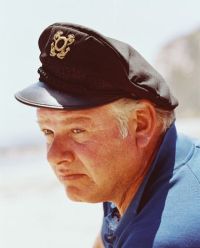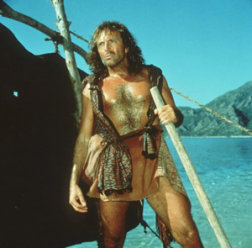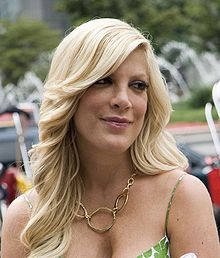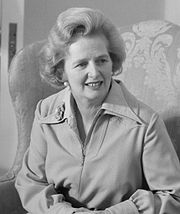
I could swear that I've seen this movie before....
Movie Pitches
THE ISLAND [epic adventure / drama]
As "Troy" and "300" have clearly shown, modern movie audiences are ready for modern re-tellings of the classics. THE ISLAND finds our hero and his traveling companions stranded on Persephone's island after the wreck of their tiny ship, the Phoxinos. The castaways are:
- Odysseus, the hapless warrior whose ignorant behavior got them into, and keeps them in, their situation. Yes, Odysseus was a warrior, not a naval commander, those roles were as distinct in the middle Bronze Age as today.
- The blustery but good-hearted sailing master of the Phoxinos, who keeps lamenting that they should have reached the next safe harbor in just three hours' sailing time but now they are stranded far from any commonly used shipping route.
- A wealthy Athenian olive merchant and his somewhat vapid wife.
- A snobbish actress, who makes a point of having performed all of Aristophanes' dramas but no mere comedies, those being beneath her artistic station. Luckily for her, she lives during the just-post-Mycenaean age and none of Aristrophanes' plays have been lost yet!
- An academician who studied under Archemedies himself and is rumored to have been involved in the invention of Greek Fire, but is still unable to devise a means of getting them off the island. He has contrived all sorts of inclined planes and levers, but nothing useful.
- The wholesome and attractive daughter of a poor shepherd.
Just as in the hit movie "Troy", the original Greek tale is told devoid of the original heavy-handed meddling of the Greek deities. Yes, it is Odysseus' fault that they are stranded, but instead of the cause being his hubris embodied by taunting Poseidon, their troubles are due to the myriad poor choices of Odysseus.
Yes,
Φοξινος
(or Phoxinos)
is Greek for Minnow.
This is the story of a fateful trip that started from an Aegean port aboard a tiny trireme. It was to have been a three-fortnight trip from the plains of Illium to the port of Ithica. But it turned into an endless nightmare on THE ISLAND!
THE GILIAD [epic adventure / drama]
"Sing, goddess, the rage of Achilles the son of Peleus, the destructive rage that sent countless pains on the Achaeans...."
We all know the story of the travelers who were stranded on a remote island for three years while on a sea voyage home from the war. But what about the origins of those familiar characters?
Exactly what happened during the military exploits of our warrior hero and his blustery Agamemmnon of a skipper? Was it really Achilles who dragged the dead enemy hero by his heels around the fortified city while the anguished father watched from atop the city walls? Or was it instead our hero who killed and defiled Hector while Achilles slept off a wicked retsina hangover?
And just whose face was it that launched the thousand ships to reclaim her from Troy? Was it really the kidnapped Mycenaean princess? Or was it the thespian who has played the lead in all of Aristophanes' plays? Or could it have been the innocent daughter of the poor shepherd from the southern Peloponnese?
Tagline:
"It's the prequel to THE ISLAND!"
Just in case someone didn't get the point of THE ISLAND....
SUMMER OF 1492 [drama]
The setting: South of Lisboa on the Portugeuse coast, late August, 1492.
Dorothy, the beautiful young wife of Vicente Yáñez Pinzón, lives alone in a small house overlooking the Atlantic. Her husband, a navigator, has left on a voyage to what most assume is his certain death, captaining a small ship named the "Pinta" under the overall command of an Italian named Cristofo Colombo. Already the black-clad elderly widows of the nearby village refer to her as "the widow Pinzón" despite her youth and the fact that no verification of her husband's death has reached Portugal.
Hermes, an adolescent boy living nearby, becomes captivated by her. With the support of his parents, he starts doing chores for her after finishing his work at home. But his captivation turns to something more as he falls in love with this widow. Or is she really a widow? Hermes does not know, as Dorothy herself does not know. Is it a sin, even in fiercely traditional 15-century Portugal, merely to seek comfort in another person? And where does the escalation of that comfort cross the line of propriety?
Not all is dark gloom and largely unrequited longing, there is a humorous scene where Hermes goes to great lengths to ask a traveling barber-surgeon for a "preservatif", as the prophylactics of the day were known — all of this, of course, "for a friend".
Of course, the Pinta under Vincente Yáñez Pinzón was somehow separated from the expedition on its return from the New World but happened to return to the port of Palos on the same day. This screenplay would depart slightly from historical accuracy to have the Pinta return five days later.
News of the safe return of the Santa Maria and Nina without the Pinta leads Dorothy to give in to the mutual longings, and she and Hermes consummate what has become their love. But then the Pinta safely returns, and Hermes is heartbroken and returns to his family home.
What will become of them? Will they force themselves to forget? Will they run away together when Vincente leaves on a later expedition? (He commanded an expedition that discovered the mouth of the Amazon in 1500) Or will Vincinte learn of the betrayal and kill them both? After all, this is 15th century Portugal. The audience is left to speculate.
Vincente Yáñez Pinzón really was the captain of the "Pinta", but he was not married to Jennifer O'Neil.
SUMMER OF 1152 [drama]
Setting: The coast of Normandy, late August, 1152
In 1147, Pope Eugene III announced the Second Crusade. It was preached throughout the kingdoms of Burgandy, Acquitania, and Normandy by Bernard of Clairvaux. Vast armies assembled and left to re-take the Holy Land.
Dorothy, the beautiful young wife of Jacques du Bouere, lives along in a small house along the bluffs above the Norman coast. Her husband has been gone for five years. Worse yet, all the men of the area returned in late 1149 after the end of the failed crusade. An ill-advised attack on Damascus had led to defeat and, eventually, the fall of Jerusalem. But she still waits for Jacques to return.
Hermes, an adolescent boy living nearby, becomes captivated by her. With the support of his parents, he starts doing chores for her after finishing his work at home. But his captivation turns to something more as he falls in love with this widow. Or is she? Hermes does not know, as Dorothy herself does not know. Is it a sin, even in 11-century northern Europe, merely to seek comfort in another person? And where does the escalation of that comfort cross the line of propriety?
Not all is dark gloom and largely unrequited longing, there is a humorous scene where Hermes goes to great lengths to ask a traveling barber-surgeon for a "preservatif", as the prophylactics of the day were known ? all of this, of course, "for a friend".
Meanwhile, Jacques du Bouere, unlike most of his Norman compatriots, had sought transportation with a combined force of Flemish, Frisian, English, and Scottish crusaders. They were forced by weather to stop in the northern Portuguese port of Porto in June 1147, where they met with King Afonso I of Portugal and were convinced to assist in his Reconquista and the seige of Moorish-controlled Lisbon. They then stayed on, living well as the royal defenders of a relatively luxurious city.
The return of the Norman forces in 1149 without her husband had led Dorothy to give in to the mutual longings, and she and Hermes consummated what had become their love. But then news arrives that the rag-tag fleet diverted to Portugal is returning up the Atlantic coast and bringing Jacques back to his home. Hermes, heartbroken, returns to his family before the fleet reaches Normandy.
What will become of Hermes and Dorothy? Will they force themselves to forget? Will they run away together when Jacques leaves on a later, and for him, deadlier crusade? Or will Jacques learn of the betrayal and kill them both? After all, this is 12th century Normandy. The audience is left to speculate.
From the creator of SUMMER OF 1492.
ALIEN: PRE-MEDIEVAL [horror]
The "Alien" movies have always been set far in the future. (Except for the "Alien vs Predator" franchise, but let's face it, that's just Sci-Fi nerdery along the lines of "Who would win a fight between Yoda and Master Po?")
ALIEN: PRE-MEDIEVAL is set in northwestern Europe during the earliest years of the Viking era. One of the alien egg cases was deposited along the North Sea coast, and now the creature is wreaking havoc. The local king summons the greatest known warrior to vanquish the creature. However, one thing the Alien movies has taught is that there's often an even meaner and very vindictive mother monster lurking somewhere....
Tagline:
ALIEN: PM — The nightime, snuffling,
sneezing, coughing, killing,
slaughtering all the Danes monster!
APOCALYPSE THEN [action/adventure]
Alternative working titles:
APOCALYPSE CONGO
AFRICAN APOCALYPSE
It's an action/adventure movie based on the classic story of the film "Apocalypse Now", except it's set in central Africa during the 1800's when Belgium's rapacious colonial system ruled that part of the world!
This bold re-imagining of the original plot plays off the popularity of the book "King Leopold's Ghost" to tell the story familiar from "Apocalypse Now" while also introducing its viewers to the history of that region.
Of course, the basic frame of the story is the same. Our central character, Marlow, must travel upriver to terminate, "with extreme prejudice", the renegade Kurtz. Except this time Kurtz is not a rogue special-forces officer but instead is a rogue master of the company's trading post. But still Kurtz's character has himself been shattered by "the horror, the horror" that he has wrought. The trip that defines the story is a passage by boat upriver into the Belgian Congo rainforest, which serves as a metaphor for the rainforest of the Vietnam-Cambodia border region of the original story.
That's another thing that will resonate — while "Apocalypse Now" referenced "The Company", the euphemism for the CIA for whom Marlow, and ultimately, Kurtz himself, worked, CONGO APOCALYPSE has its characters of the 1800s Belgian Congo casually referring to their unnamed trading company in precisely the same vague yet sinister terms!
Also as in "Apocalypse Now", the story is not just about Marlow and the mysterious Kurtz (unseen until near the end of the story), but also brings to life the minor characters like Jozef Korzeniowski, the Polish captain who pilots the boat upriver, and other minor characters in the crew and at the meagre waystations along the river.
Yes, "Joseph Conrad" was the pen name of the Polish author Jozef Korzeniowski.
TAFT [action / detective / whitesploitation]
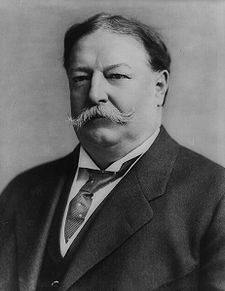
Cool and corpulent former U.S. President, 10th Chief Justice of the United States, and private detective William Howard Taft is the ultimate suave operator. Already well known for busting trusts, he now busts heads when he goes between two criminal gangs using violence and kidnapping in ruthless attempts to control each other.
Along the way he strengthens the Interstate Commerce Commission and weakens the stranglehold the gangs have had over the poor people in the ghetto.
He's the cat who won't cop out when there's danger all about: Taft!
TAFT'S BIG SCORE [action / detective / whitesploitation]
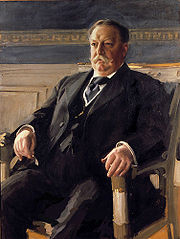
Ultra-cool former U.S. President and badass detective William Howard Taft is the champion of the underdog as he fights big business, busting trusts in the courts as easily as he busts heads on the street.
When he finds that a recently deceased friend was running a numbers racket out of his legitimate business, he understands why rival criminal gangs have taken an unhealthy interest in his friend's widow.
Having earlier empowered the people by his support for the 17th Amendment and its provision of direct election of senators by the citizens, he now empowers the people of the ghetto to take down the criminal gangs terrorizing their way of life.
He's the portly private dick who's a sex machine to all the chicks: Taft!
TAFT IN AFRICA [action / detective / whitesploitation]
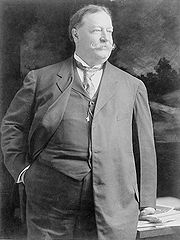
William Howard Taft — Secretary of War under T.R. Roosevelt and the ultra-tough wielder of Teddy's Big Stick military policy, trust-busting U.S. President feared by crooked businessmen, and Chief Justice of the United States. He's also one ultra-smooth detective unafraid to get his hands dirty.
Having actively pursued what he called "Dollar Diplomacy" to further economic development of less-developed nations in Latin America, Africa, and Asia, he was not afraid to send U.S. Marines into Nicaragua in 1910 and 1912 when force was needed, a mission that continued through 1925.
With an interest in the tropics and a willingness to use force, this cat Taft is one bad mutha. (I'm just talking about Taft. Can you dig it?) He can't turn his back on people in trouble, and the lure of a beautiful woman leads him into a dangerous undercover role in breaking an African immigrant-smuggling operation.
His ruling in Balzac v. Puerto Rico (1922, 258 U.S. 298, opinion for the Court) held that the 14th Amendment did not extend the elements of the Bill of Rights to overseas territories, and his ruling in Bailey v. Drexel Furniture Company (1922, 259 U.S. 20) was a ringing denunciation of the cruelties of child labor. Had those immigrant-smuggling thugs selling children into modern slavery kept up with Supreme Court rulings, they might have foreseen the brutal beatdown they would receive from TAFT IN AFRICA!
From the creators of ONE SCORE AND FOUR.
Of course, Balzac v. Puerto Rico only ruled that the criminal elements of the Bill of Rights did not apply to overseas territories, not the entire Bill of Rights itself. But Artistic License seems to justify this slight deviation from legalistic literalism.
TORI! TORI! TORI! [war / science fiction]
The characters of the original "Beverly Hills 90210", led by Donna Martin, the only daughter of a successful physician and a socialite, are transported through a strange electromagnetic vortex to the north-central Pacific Ocean in late 1941, where they have an opportunity to change history.
With Michael Douglas as a grizzled sea captain and Charlie Sheen as a Government Man Who Owns a Dog.
TORY! TORY! TORY! [war / science fiction]
Margaret Thatcher, the "Iron Lady" herself of British politics, is transported through a strange electromagnetic vortex to the north-central Pacific Ocean in late 1941, where she has an opportunity to change history.
With Michael Douglas as a grizzled sea captain and Charlie Sheen as a Government Man Who Owns a Dog.
TORAH! TORAH! TORAH! [war / science fiction]
Three rabbis, one Reform, one Orthodox, and one Ultra-Orthodox, are transported through a strange electromagnetic vortex to the north-central Pacific Ocean in late 1941, where they have an opportunity to change history.
With Michael Douglas as a grizzled sea captain and Charlie Sheen as a Government Man Who Owns a Dog.
DORA! DORA! DORA! [war / science fiction]
A young, adventuresome, Hispanic, animated girl is transported through a strange electromagnetic vortex to the north-central Pacific Ocean in late 1941, where she has an opportunity to change history.
With Michael Douglas as a grizzled sea captain and Charlie Sheen as a Government Man Who Owns a Dog.
EEYORE! EEYORE! EEYORA! [war / science fiction]
A pessimistic donkey and his friends, including a honey-loving bear, a spring-tailed tiger, and a kangaroo and her cub, are transported through a strange electromagnetic vortex to the north-central Pacific Ocean in late 1941, where they have an opportunity to change history.
Well, from the perspective of their apparent late Edwardian setting, the future. But our history. Whatever.
With Michael Douglas as a grizzled sea captain and Charlie Sheen as a Government Man Who Owns a Dog.
THE 30-PACK OF PABST BLUE RIBBON [horror]
Set in Louisville, Kentucky during the frenzied festivities of Derby Week, THE 30-PACK OF PABST BLUE RIBBON turns horror conventions on their metaphorical heads by using the criminal as its protagonist and point-of-view of the story.
Floyd had always been an insulting acquaintance. An idiot regarding NASCAR and a fool about college football. His only strong point was his beer drinking.
When our narrator meets Floyd during a street party at the height of Derby Week, he finds Floyd even drunker, and more insulting, than usual. He immediately invites Floyd back to his home ("No longer a trailer", he proudly adds), to help polish off a 30-pack of Pabst Blue Ribbon. "Oh, but no, you're busy here, I could get Larry to help me drink it", he then says.
Oh no, Floyd is willing to drop everything and help drink the PBR. He follows our depraved narrator back to his home (complete with major appliances on the porch and a Trans-Camaro up on blocks in the yard, of course), and down into the basement. Back past the furnace, past the shelves with the Boones Farm (a bottle of which they open, to "wet their whistles"), and past the shelves with the long-congealed cans of latex paint.
As Floyd stumbles into an alcove behind the water heater, our protagonist hand-cuffs him to a no-longer-used gas line and pulls a mason's trowel from underneath his flannel shirt. Floyd screams as the alcove, his tomb, is slowly bricked in. All because of his interest in THE 30-PACK OF PABST BLUE RIBBON.
THE WEST SIDE OF OLDE VERONA [romantic musical]
It's a remake of "West Side Story", boldly re-imagined with its setting moved to northern Italy in the 1600s and with all spoken dialogue in iambic pentameter! And with daggers and poison instead of switchblades and guns.
DELHIVERANCE [adventure/drama]
Avatars of the tripartite godhead of Hindu theology — Brahma the Creator, Vishnu the Protector, and Shiva the Destroyer — undertake a journey down the sacred Ganges River.
Along the way they encounter an albino sitar player (for a Bollywood style musical interlude) and some rustic locals (to whom they give enlightenment).
Categories and Titles
Back to The Nonsense Page
Back to Bob's home page
